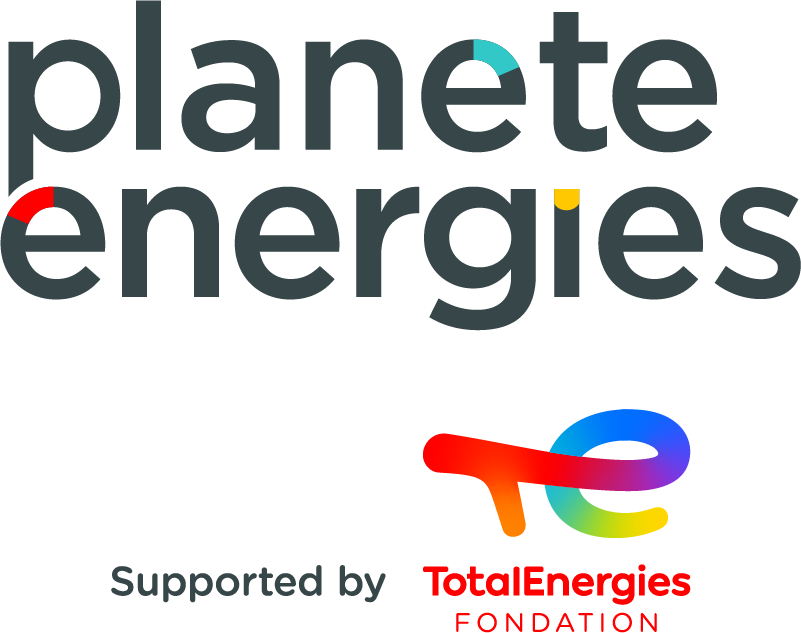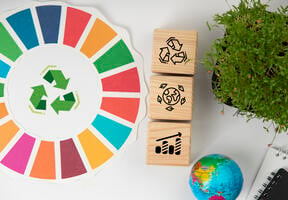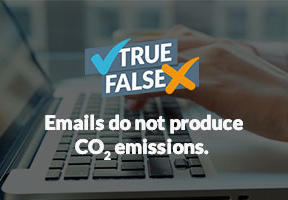Sufficiency to Save the Planet
5 min read
There is an increasing urgency in the call to action to reduce energy consumption. But why does "sufficiency” have such an impact on
, sustainable
development, the environment - in short, on the future of our planet? Below are some explanations and ideas for energy-saving actions.

© freepik
The IPCC[1], which federates scientists from all over the world to study the changes in the Earth’s climate, gave a definition of sufficiency in April 2023: "a set of policy measures and daily practices that avoid the demand for energy, materials, land, water, and other natural resources while providing wellbeing for all within the planetary boundaries”
Three key ideas to remember
These few paragraphs from the IPCC speak for themselves:
- The planet has limited resources. We cannot continue to demand more of it to ensure relentless economic growth. Every year, the date on which humanity's natural resource consumption for the year has exceeded the Earth's capacity to regenerate those resources within the year is calculated - this is known as "Earth Overshoot Day".
- We must ensure wellbeing for everyone. The transition must not therefore be a punitive one, in particular for the poorest and most vulnerable populations, who are already suffering “imposed sufficiency”. This implies greater “justice” toward the most impoverished countries and vulnerable social categories.
- All resources are impacted: energy, materials (such as raw materials), land (deforestation and concretization), water (vital to life). In the energy sector, this is called “energy sufficiency”.
“Sufficiency” is crucial in particular to achieve “net zero emissions” of greenhouse gases by 2050. This goal is deemed necessary to limit to 1.5°C, i.e. the increase in the global average temperature compared to the beginning of the industrial era, in the 19th Century.
Renewables and technology are no longer enough
To achieve this aim, production needs to be improved, which means expanding the range of energy solutions:
- Progressively phase out fossil energies and replace them with renewables (hydraulic, wind, solar, , ) or decarbonized energies (such as ).
- Improve to use less energy in product manufacture and use (e.g. engines with better yield).
But experts are increasingly convinced that such measures will not be sufficient, and that consumption, i.e. consumer demand, must also be reduced. Sufficiency is therefore the third pillar in , in addition to the switch to decarbonized energies and energy efficiency.
What actions can be taken?
What can be done? Does the solution lie in individual actions? Yes, but in connection with others: your classmates, next-door neighbors, people living in the same town or village. Eco-delegates in French middle- and high-schools can play a leading role with you in the transition . It’s both an individual and collective approach.
The IPCC and other experts have started to systematically list the most efficient sectors and initiatives.
Transport
In this sector, it is crucial to avoid modes of transport that consume large quantities of energy. For example, flying when taking the train is possible, and avoiding long-distance weekends. Most importantly “soft” mobility options (bikes, scooters, walking) should be used as often as possible, rather than counting on Mum and Dad to play taxi.
Food
It has been established that livestock rearing, in particular cattle, significantly contributes to greenhouse gas emissions. Changing the way we eat, by increasing the quantity of fruit and vegetables and reducing animal proteins, is going to be more and more necessary. Many schools have begun to introduce a vegetarian option once a week. Another important action is to reduce the amount of food wastage. A lot of students have learned how to make compost. We can also opt for bulk purchasing rather than choosing products with unnecessary packaging .
Energy consumption at home
We are all familiar with the recommendations to switch off lights, turn down the heating and save water. If only things were that simple... More broadly speaking, we need to use less energy, fewer raw materials and fewer manufactured (factory-produced) products. This affects our entire lifestyle: don’t fall into the “fast fashion” trap, where clothes collections change every three months, or buy the latest smartphone, or play online video games that consume vast quantities of energy. If a device breaks down, it’s also better to have it repaired than throw it away and buy a new one. And torn clothing can be sewn and mended.
Sufficiency or degrowth?
Sufficiency can of course, be observed to a greater or lesser extent. Taken to the extremes, it’s referred to as frugality. If the very principle of consumption as an economic driver is called into question, there is a shift toward degrowth and the reduction of GDP (Gross Domestic Product, which measures the market value of all the goods and services produced by a country). It will be up to the new generations to determine to what extent the “consumer society” established in the 1950s after the Second World War, needs to be revised and reworked.
|
Repairability index 
© economie.gouv.fr
The repairability index was introduced in France in 2021 to inform consumers to what extent the products they buy can be repaired. This initiative helps fight against built-in obsolescence and reduces scrapping. It concerns more and more electronic products and domestic appliances (smartphones, laptops, television sets, dishwashers, washing machines, vacuum cleaners, etc.). The index is a score from 1 to 10, based on several criteria, such as the clarity of the technical documentation, how easy it is to disassemble the product, the availability of spare parts, and the price. |
To find out the repairability index of your device, visit the following website: https://monindicedereparabilite.fr/home
A directory of people who repair devices and appliances has been drawn up by the French Environment and Energy Management Agency (ADEME) and the Chamber of Trades and Crafts: www.reparacteurs.artisanat.fr/
[1] IPCC = Intergovernmental Panel on Climate Change.






















